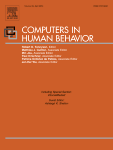Artículo de investigación: Loafing in the digital age: The role of computer mediated communication in the relation between perceived loafing and group affective outcomes
 Autor: Lucas Monzani,Pilar Ripoll, José María Peiró y Rolf Van Dick
Autor: Lucas Monzani,Pilar Ripoll, José María Peiró y Rolf Van Dick
Título: Loafing in the digital age: The role of computer mediated communication in the relation between perceived loafing and group affective outcomes
Fuente: Computers in Human Behavior
Resumen: Virtual work has become an increasingly central practice for the organization of the 21st century. While effective virtual workgroups can create synergies that boost innovation and performance, ineffective workgroups become a great burden for organizations. Empirical research has shown that some negative behaviors, such as social loafing, negatively influence a group’s affective outcomes, in both collocated (face-to-face) and virtual workgroups. In this study, we explore if working through low fidelity computer mediated communication (CMC) increases the negative impact of perceived loafing over cohesion and work satisfaction. On this rationale, we conducted a laboratory study with 44 groups of four members each, who worked on a project in four sessions over a one-month period, in either face-to-face or low fidelity CMC conditions. Results show that the communication media condition moderates the effect of perceived loafing in the expected direction, meaning that, in the low fidelity CMC condition perceived loafing had an increased negative effect on group cohesion and satisfaction with the work process and its results.
Ver artículo
Cómo citar este artículo:
Monzani, L., P. Ripoll, J.M. Peiró y R. Van Dick (2014): "Loafing in the digital age: The role of computer mediated communication in the relation between perceived loafing and group affective outcomes", Computers in Human Behavior, 33, abril, pp. 279-285.






